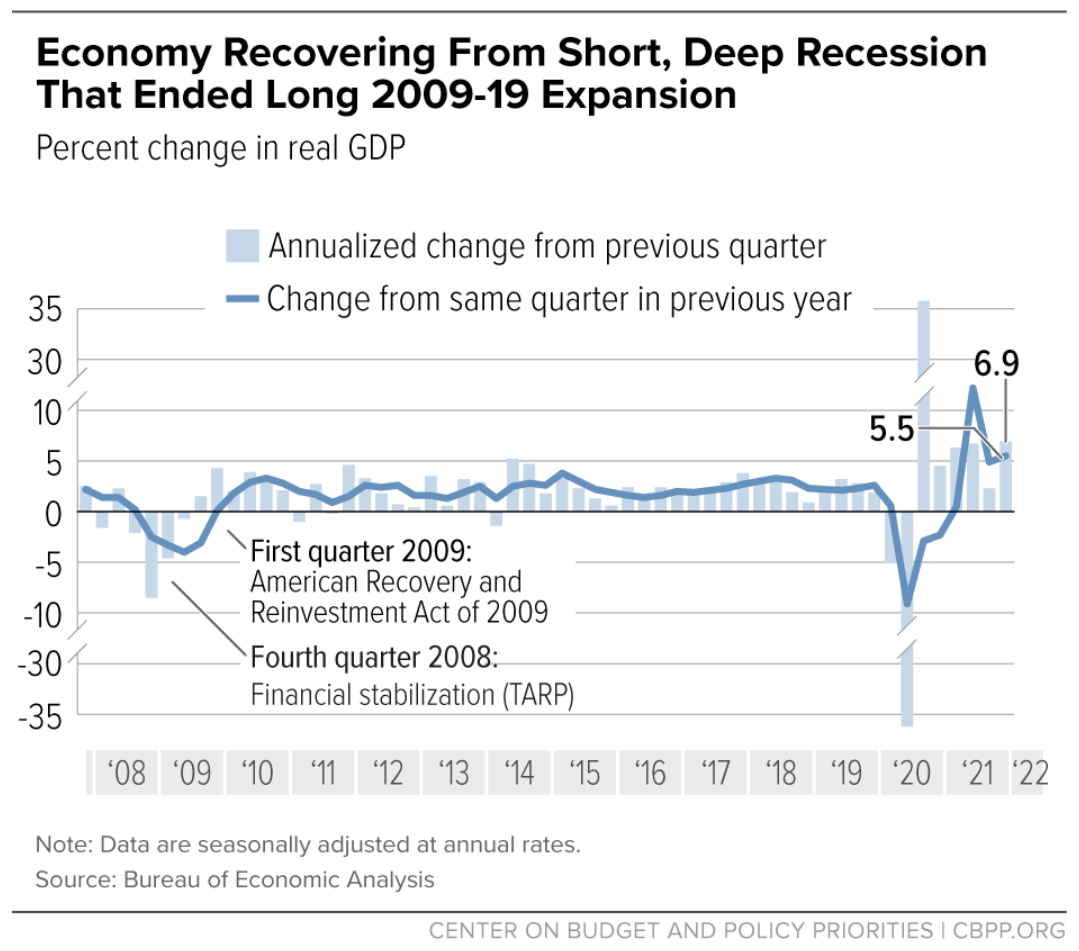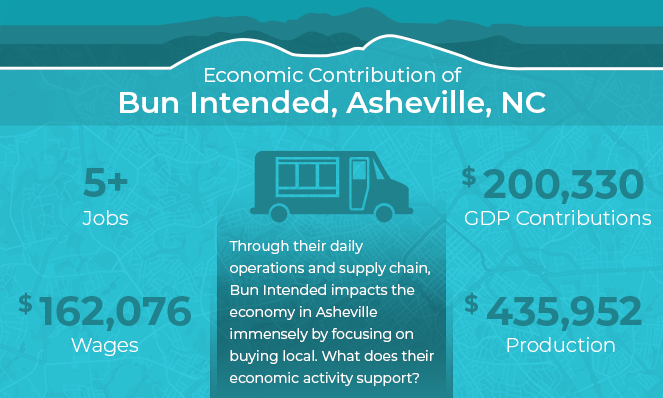An enormous variety of factors are at play in any given economy, and there are countless measuring tools and data sets that can help us better understand what is happening in our economic environment. In times of great change, like we’re experiencing now in the wake of the COVID-19 pandemic, it can be helpful to take a step back and look at the big picture. IMPLAN data sets provide very granular geographic and industrial levels of detail, with consistent data estimates spanning from 2001 to the most recent IMPLAN data year. These micro data can be used in concert with macro data from other sources to gain a rich understanding of local and regional economies, as well as the national economy. In today’s blog, we’re looking at some measurements that can be used alongside IMPLAN data to gain a better sense of the big picture.
The Big Picture: Understanding the State of the Economy Using IMPLAN Data and Other Sources
Topics: Data, Economic Development
Uncovering Real Economic Insights from the 2020 Data
2020 was an unusual year for sure — the pandemic, the great resignation, working remote, and more. IMPLAN's 2020 data holds a tremendous amount of valuable economic intelligence.
Topics: Data, Economics, Technology, Coronavirus
It’s that time of year again. Here at IMPLAN, we mark the holiday season with our annual data release. That means 2020 data has arrived in the IMPLAN application!
Topics: Data, Economics, Technology
In early August 2021, the Infrastructure Investment and Jobs Act passed in the Senate. By the end of the month, the House of Representatives agreed on a September 27 deadline for voting on the bill, and given its bipartisan support, it is expected to pass there as well. This new bill focuses on investments in roads, railways, bridges, and broadband internet. It proposes $550 billion in new spending from 2022 to 2027, with the aim to improve sustainable transportation options, expand access to high-speed internet and clean drinking water, and upgrade our power infrastructure to facilitate the expansion of renewable energy.
These are exciting goals, backed by a lot of money. But what exactly will the economic impact of these investments look like? The ripple effect of this large amount of government spending can be expected to make a difference across the country, not just in the industries where it is initially spent, but also far beyond. We can get a clearer picture of the infrastructure bill’s impact on the economy through Input-Output Analysis performed by economists at IMPLAN Group, LLC, the leading provider of economic impact data and technology.
Topics: Data, Economics, Employment, Methodology, Impact, Government
What You Need to Know About Evolving Economy - COVID Q3-2020 Data
The world economy experienced drastic changes in 2020 as a direct result of the coronavirus pandemic. In order to address these drastic economic changes in our data, IMPLAN has released its second ever quarterly data set. The Evolving Economy - COVID Q3-2020 data captures the initial stages of the economic recovery in 2020. This data set, which is equipped to perform all forms of impact analysis modeling, is available now in the IMPLAN application.
Topics: Data, Economics, Employment, Methodology, Impact, Coronavirus, Disruption
Ask an Economist: FAQs for New Business Location Economic Impacts
Our webinar, The Economic Impact of a New Business Location, walked through the process for modeling the economic impact of a new business location. In the presentation, considerations for the construction and operations impacts were covered and examined in the context of the Lowe’s Design Center Tower project. If you missed the live presentation, you can watch the recording here. The discussion generated a number of questions highlighting important points about running these analyses. Check out what our economists had to say below:
Topics: Data, Economics, Employment, Methodology, "Taxes", Impact, Economic Development, Corporation, Government
What is the Economic Impact of the COVID-19 Vaccine Manufacturing Process?
2020 has been an incredibly challenging year for most of the world with seemingly very few bright spots to focus on. The emergence of COVID-19 has dramatically altered the way we live, perhaps permanently. Coronavirus-motivated mask mandates, regional shutdowns, capacity restrictions, and social distancing brought about economic uncertainty. The most commonly cited hope for a return to normalcy has been the widespread availability of a vaccine. Due to the fast-tracking of vaccine trials and significant government support, several effective vaccines appear to be on the horizon as we head into 2021.
The public health benefit is straight-forward, however the economy is a very important concern to many. Anticipating the vast impact across the economy is incredibly difficult due to the unpredictability of consumer confidence in the midst of the pandemic. Despite this unpredictability, the sizable economic impact of investment in the vaccine manufacturing process can be readily estimated with Input-Output Analysis. Using publicly available data to define input values, IMPLAN has performed an analysis of the effect of the Federal government’s spending on vaccine manufacturing.
Topics: Data, Press Release, Economics, Employment, Methodology, Impact, Government, Coronavirus, Disruption
Modeling the Impact of the Coronavirus with Evolving Economy Data
The coronavirus epidemic has reset the way we understand and examine the economy. With major changes to employment levels and household spending, plus stimulus checks, increased unemployment benefits, and PPP loans, it is crucial that economic data is updated during this time. With that in mind, IMPLAN is proud to announce the release of ground-breaking data and economic impact models for the COVID-19 era: Evolving Economy - COVID Q2-2020.
Topics: Data, Economics, Technology, Methodology, Impact, Economic Development, Coronavirus, Disruption
The most granular employment insight IMPLAN has ever assembled and organized by occupation and core competency is now available for purchase inside the IMPLAN application. Our occupation data shows estimates of employment, wages, hours, and core competencies for 823 different occupations. What you find in the data and how can it be leveraged in your own studies can be a game-changer.
Topics: Data, Economics, New Market Tax Credit, Methodology, Impact, Economic Development
Small Business, Big Economic Impact: Food Trucks and the Coronavirus
Across the country, the service industry has felt the consequences of the coronavirus more severely than most. Through the beginning of May, more than 8 million restaurant jobs were lost. While cities and regions of all sizes have felt the strain, social distancing and business restrictions have affected small businesses in towns reliant on tourism spending particularly harshly. One of these towns is Asheville, North Carolina. Asheville, a city located in the Blue Ridge Mountains of western North Carolina, is known for its beautiful mountain views, tourist attractions, and incredibly robust brewery scene.
According to IMPLAN data, the food service industry supports over 18,000 jobs, making it the largest employment sector in the Asheville MSA. When COVID-19 hit and businesses began closing up shop for indeterminate periods of time, it left many uncertain of how they could continue operating. Gathering restrictions and event cancellations posed a unique threat to the more than 100 food trucks that operate in and around Asheville.
Topics: Data, Economics, Contribution Analysis, Tourism, Impact, Economic Development, Coronavirus, Disruption



.png)







.png?width=80&name=IMPLAN_Logo_Print-Vector_NEW%20(2).png) Copyright 2025
Copyright 2025